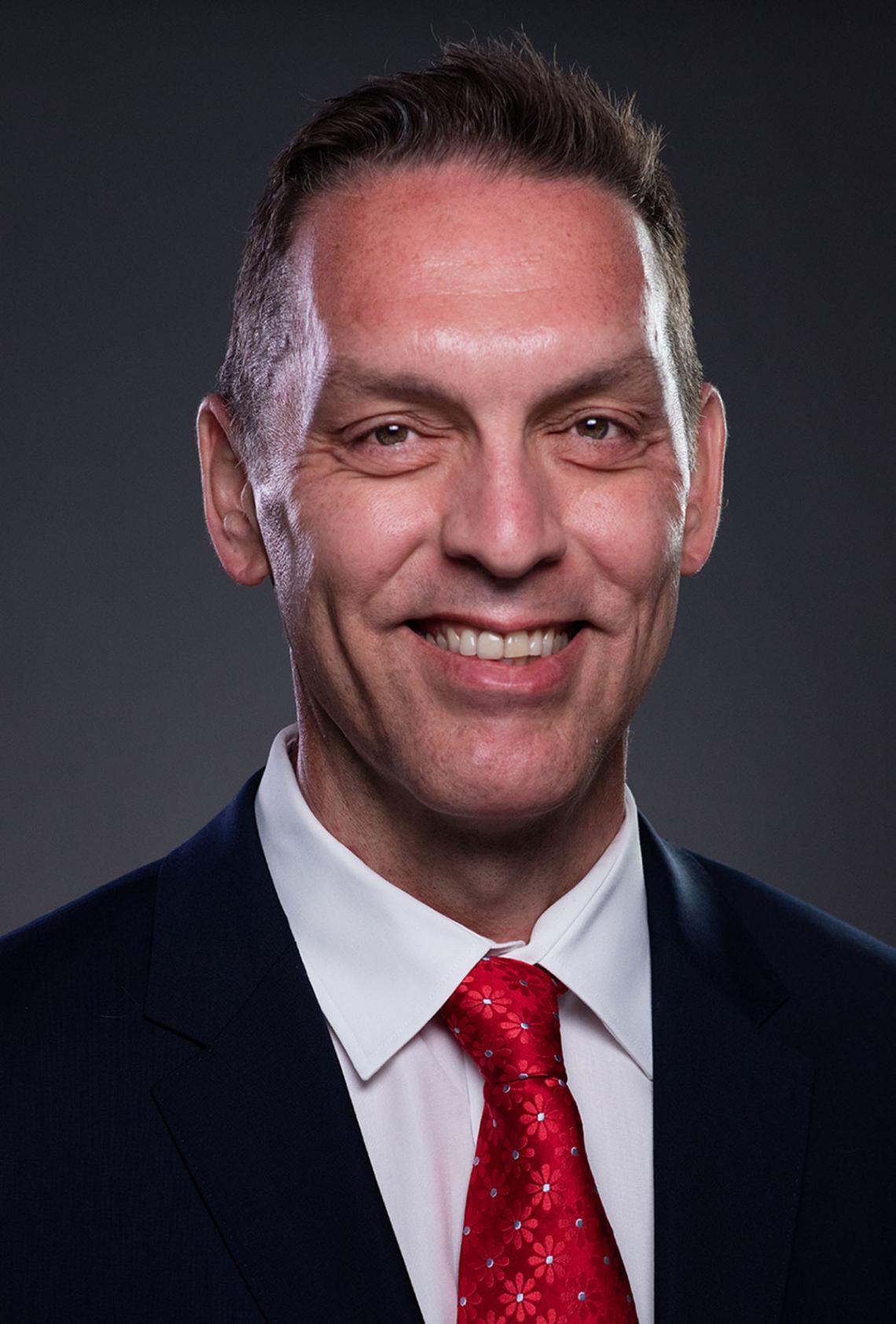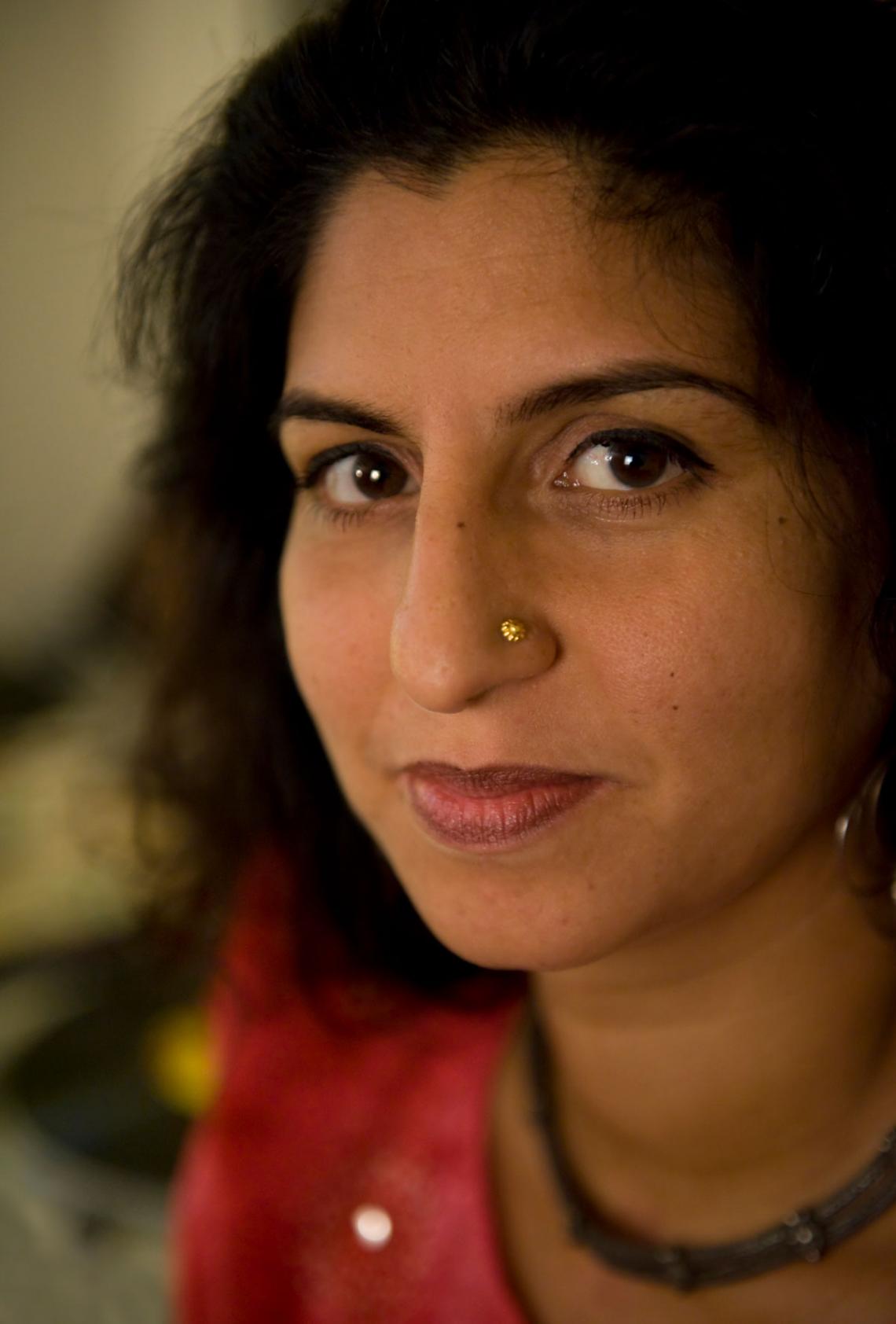January 10, 2018 | By Kayla Stoner
Lane Fenrich and Nitasha Sharma, Northwestern University professors and champions for underserved students, each will receive $5,000 to recognize their efforts as recipients of the Daniel I. Linzer Awards for Faculty Excellence in Diversity and Equity, sponsored through the Office of the Provost.
Fenrich and Sharma will be recognized April 30 at an awards ceremony.
Daniel I. Linzer Grants for Innovation in Diversity and Equity have provided an additional $184,110 to support 15 projects, including health research and initiatives for diverse populations, efforts to address racial biases in the arts and studies of the law and politics of religion.
The Linzer Grants and Awards aim to build a more diverse, inclusive and equitable climate on campus. Since their inception in 2017, the grants and awards have provided nearly $350,000 to initiatives that enhance diversity across the spectrum, including race, gender, religion, socioeconomic status, age and political affiliation.
2018 recipients of the Daniel I. Linzer Awards for Faculty Excellence in Diversity and Equity
The BRIDGE program specifically targets students who attended high schools with limited or no AP preparation and those who are among the first in their families to attend college.
“This is a great honor, but really, the work is its own reward,” said Fenrich, assistant dean for first-year students, director of transition programs and professor of history and gender and sexuality studies in Weinberg College. “BRIDGE grew out of a years-long effort involving dozens of people in Weinberg College and across the University to welcome students and to help them succeed. We have a great team and amazing students whose hard work and struggles inspire me every day.”
Fenrich’s successful efforts with the BRIDGE program have helped numerous first-generation and low-income students increase their persistence in STEM majors and create connections among faculty, campus resources and other students throughout the Northwestern community.
Nitasha Sharma is recognized for her dedication and work in creating interdisciplinary courses specifically focused on issues of inequality, racism and diversity. She has helped increase resources for marginalized students on campus and served as a mentor for a number of Mellon Mays Undergraduate Fellows. She also was the faculty mentor for Northwestern’s first Posse cohort that graduated last year. Posse is a national program that identifies high school students for academic and leadership potential for admission into partner universities, including Northwestern.
“I appreciate this award recognizing my work that focuses on understanding and challenging power and inequality,” said Sharma, an associate professor of African American studies and Asian American studies in Weinberg College. “Working with undergraduate students has been especially meaningful, both in my classes – including ‘Black and Asian Historical Relations’ – and out of the classroom through one-on-one mentoring and working with the Posse scholars.”
2018 recipients of the Daniel I. Linzer Grants for Faculty Innovation in Diversity and Equity
Developing a Northwestern Center for Latino(a) Health Disparity Research
- Nanette Benbow, Feinberg School of Medicine, psychiatry and behavioral sciences
- Hector Carrillo, Weinberg College, Sociology
- Carlos Gallo, Feinberg, psychiatry and behavioral sciences
Funds will be used to plan and host a conference of local and national experts on Latino(a) health and the social determinants of health. Results from the conference will be summarized in a report describing the current research and potential future directions for a Latino(a)-focused research center exploring innovative approaches to promote health equity.
Borders & Identities: (Re)Imagining Our City Through Critical Youth Research
- Alejandro Carrión, Weinberg College, Latina and Latino studies
- Shirin Vossoughi, School of Education and Social Policy (SESP), learning sciences
- April Alexis Navarro, SESP, undergraduate representative of NU Borders and Identities Youth Participatory Action Research Collaborative
Funds will be used to develop a cross-generational academic mentorship model and summer program that brings together Northwestern faculty members, graduate and undergraduate students, and CPS high school students who identify as low-income and first-generation students of color. Participants will collectively engage in rigorous, community-based research and action focused on the ways gentrification is impacting their communities and lived experiences.
2 Queens in a Kitchen: Performing Southern and South Side Culinary Arts Through TV
- Aymar Jean Christian, School of Communication, communication studies
- E. Patrick Johnson, Weinberg College and School of Communication, African American studies and performance studies
Funds will support the production of a television series about the culinary arts of the U.S. South and Chicago’s South Side neighborhoods and about the importance of women and queer people in maintaining these culinary traditions. Support also will allow project leads to arrange screenings at Northwestern’s Block Museum of Art and The DuSable Museum of African American History.
Tackling Health Disparities Through Social Justice
- Deborah Edberg, Feinberg, family and community medicine
- Deborah Clements, Feinberg, family and community medicine
Funds will be used to develop a new social justice curriculum for family medicine residency physicians, faculty members and students. Curriculum will explore the historical context of systemic racism and discrimination along with the power of implicit bias and its impact upon communities, health professionals and patient populations. Funds will support professional social justice facilitator fees with the goal of considering ways to address bias on a personal, organizational and systemic level to positively address health disparities.
3rd Annual State of LGBTQ Health Symposium: The Intersection of Race and LGBTQ Issues
- Francesca Gaiba, Feinberg, medical social sciences
Funds will be used to expand the audience and impact of the 2018 ISGMH (Institute for Sexual and Gender Minorities Health and Wellbeing) Symposium, which will focus on the intersection of racial/ethnic and LGBTQ identities.
Cultural Competency in the Classroom and the Field
- Mei-Ling Hopgood, Medill School of Journalism, Media, Integrated Marketing Communications, journalism
Funds will support the development and execution of a cultural competency curriculum that aims to give journalism and communications students the tools to more effectively listen and report in communities as well as productively engage with their classmates during this time of high conflict and polarization. Funds will help support experts who will train faculty and staff to assess and plan current and future work. Funds also will support fees for journalists of color to share their experiences in the field and interact with diverse student journalists.
Law and the Politics of Religious Diversity
- Elizabeth Shakman Hurd, Weinberg College, political science, religious studies and Middle East and North African studies
Funds will support the development of an interdisciplinary undergraduate seminar based on a set of legal case studies on law and religion. This course will teach students to think critically and comparatively about law and the politics of religious diversity by drawing on local communities and their concerns. Through this course, students will examine cross-national, cross-cultural and global considerations.
NU FSM Alternative Spring Break (aka NU DOC)
- Teresa Mastin, Feinberg, director of the Diversity and Inclusion Office
- Constance Wright, Weinberg College, assistant dean
Funds will be used to pilot a one-week pre-professional advising and skills building program for Northwestern undergraduate health profession majors. Members of underrepresented minority groups will be strongly encouraged to apply. Funds will support an intensive alternative spring break experience, ongoing mentorship, MCAT preparation assistance and medical school interview training.
Arts Leaders Addressing Racial Bias: Case Studies and Curriculum Development with Enrich Chicago
- Jennifer Novak-Leonard, School of Communication, lecturer of communication studies and director of the master of science in leadership for creative enterprises program
Funds will support a novel partnership with a cohort of arts and philanthropic organizations committed to anti-racist organizing within the arts, to develop case studies and a graduate-level course for future arts and cultural leaders that addresses racial diversity within the arts fields.
Evaluation and Community Collaboration (EC2) Conference: Bridging Northwestern Evaluators and the Chicago Community
- Gregory Phillips II, Feinberg, medical social sciences
- George J. Greene, Feinberg, medical social sciences
- Leah C. Neubauer, Feinberg, preventative medicine
The Evaluation, Data Integration and Technical Assistance (EDIT) Program, housed within ISGMH, will partner with key stakeholders of the Northwestern University Evaluation and Research Alliance to host a day-long conference focused on fostering successful community/academic partnerships through an empowerment evaluation approach. The EDIT Program’s Evaluation Center will share lessons learned and best practices from three years of engaging with 15 HIV prevention organizations throughout Chicago to evaluate their interventions. Members of partnering community organizations also will share their experiences of the project and discuss how Northwestern researchers and evaluators can expand and improve these partnerships moving forward.
Black Men LEAD
- Nichole Pinkard, SESP, learning sciences
- Alan Anderson, Neighborhood and Community Relations
- Marcus Campbell, SESP, Master of Science in education
Funds will be used to launch a conference that will bring together Northwestern undergraduate and Evanston Township High School black male students around shared scholarship, interest, challenges and opportunities. Students will research, design and co-lead the conference for their peers. Conference topics will address how to support black male student success through attention to culture, climate and practices. This project is facilitated and supported by the Northwestern University – Evanston Township High School Partnership Office and the Martin Family Fund of Evanston.
Healing Babies Without Bias
- Shawn Smith, Feinberg, pediatrics
- Nana Matoba, Feinberg, pediatrics
- Chariya Christmon, Feinberg, pediatrics
Funds will support the assessment of baseline unconscious bias among staff in the neonatal intensive care unit, the development and delivery of educational activities to address those biases, and post-program assessment of changes in unconscious biases. Through this work, clinicians will gain a better understanding of their role in helping dispel biases and disparities in medical management.
NU STEM-Ming the Barriers to Opportunity - A Strategic Alliance Partnership to Cultivate Science, Medicine, and Health Pathways at the High School Level
- Janet Rocha, Feinberg, postdoctoral research fellow in the department of internal medicine
- Clyde Yancy, Feinberg, vice dean for diversity and inclusion
This project intends to develop a deeper database based on qualitative research assessing factors responsible for successful transition from high school to college for talented, under-represented minorities who participate in a novel pre-college engagement program within the broad umbrella of Northwestern University. Selected students from George Westinghouse College Prep in the West Loop of Chicago are initiated over a 3-year period in the Northwestern Medicine Scholars program, which is housed on Northwestern’s Chicago campus. They are exposed to enrichment programs and an intensive summer learning series to better appreciate careers in healthcare and biomedical sciences. The 8-year-old program has 100 percent high school graduation and college matriculation rates as well as a critical mass of alumni pursuing undergraduate studies. NU-STEM-Ming will use structured qualitative research to identify barriers to success at the college level and useful strategies that will facilitate achievement. The research this grant supports will better enable students, many of whom are from college-naïve families (i.e., first generation to attend college), to become better prepared for a successful transition from high school to college. For more information, visit scholars.nm.org.
Introduction to Native American and Indigenous Literatures
- Kelly Wisecup, Weinberg College, English
This seminar course will allow students to investigate Native American literatures from pre-Columbian texts to National Book Award-winning novels of the 21st century. Students will survey centuries of literary history and written, digital and image-based texts. This focus on multimedia literature will challenge students to study Native literatures in theoretically and culturally informed ways and provide them with critical analysis tools and methodologies.
The Causeway Postbaccalaureate Program
- Eric Zaslow, Weinberg College, mathematics
- Santiago Canez, Weinberg College, mathematics
- John Alongi, Weinberg College, mathematics
- Bryna Kra, Weinberg College, mathematics
- Onnie Rogers, Weinberg College, psychology
This ambitious,12-month graduate program will increase the number of underrepresented minority students who are prepared to enter doctoral programs in the mathematical sciences. Funding will support recruitment efforts and the building of a consortium model of partner institutions and stakeholders. The goal will be to diversify the field of graduate mathematics through offering a framework for success: curricular foundations, research experiences, a strong and supportive cohort, mentoring relationships and career preparation.


